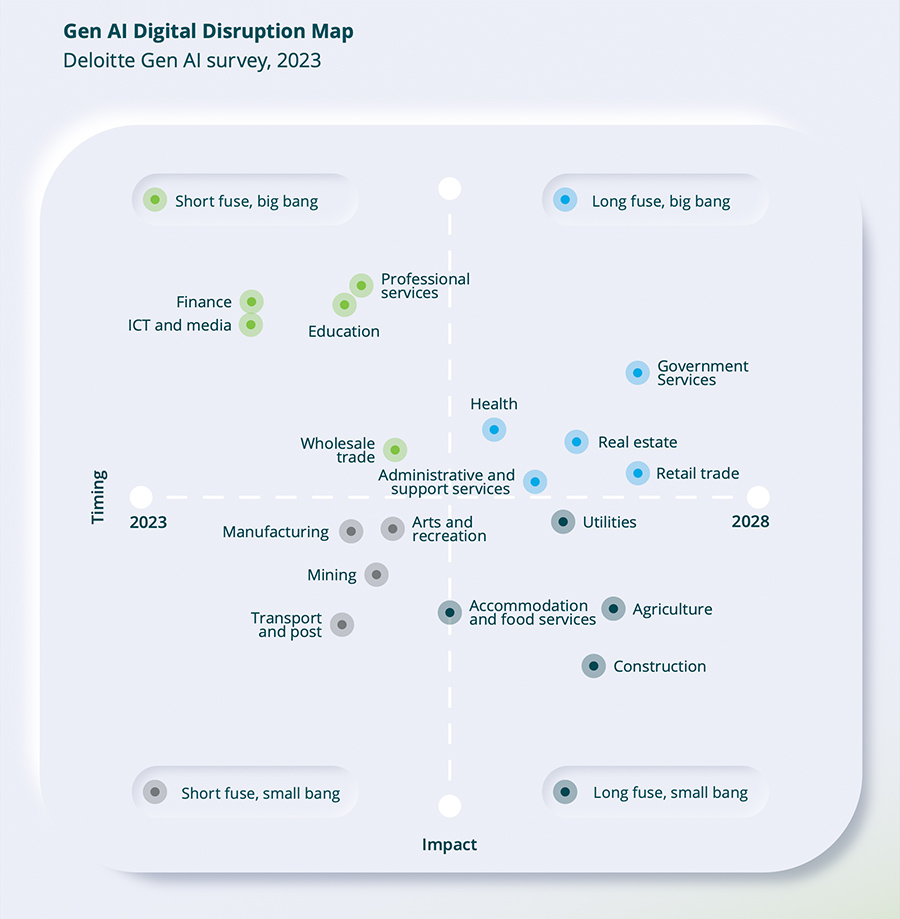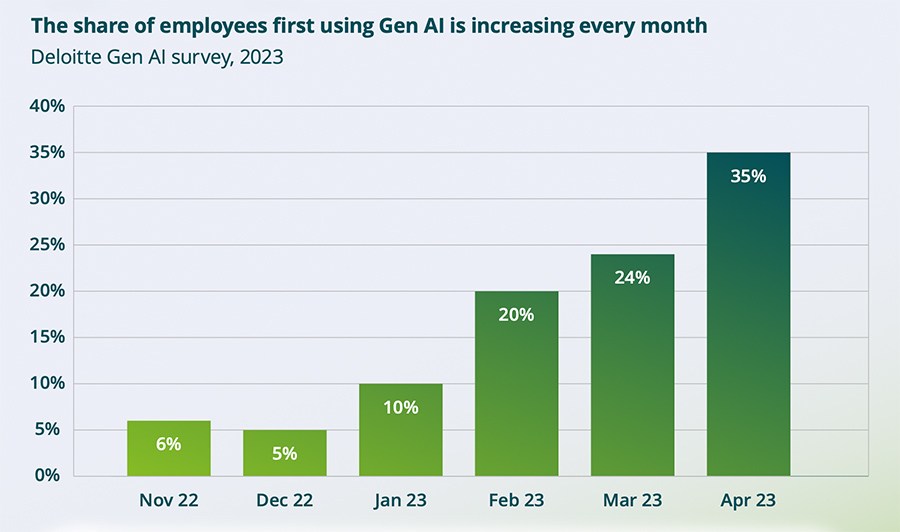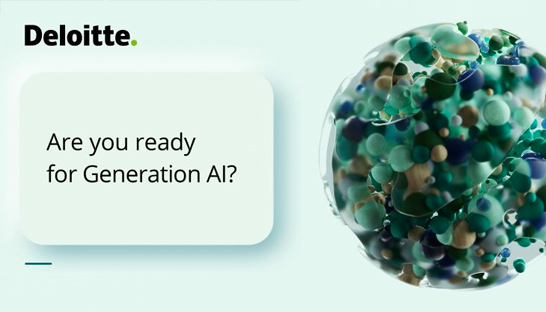[ad_1]
Generative artificial intelligence, which allows users to easily create text, images, videos and other media with minimal input, is set to disrupt a cross-section of Australia’s $600 billion economy. This equates to roughly a quarter of the country’s total economy.
The changing landscape will be felt across many different industries, according to a report by consulting firm Deloitte, with some industries experiencing a “big bang” generative adoption of AI. These include, but are not limited to, financial services, ICT and media, education, professional services, healthcare and civil services.
According to the study, students were found to use generative AI more than employees. 58% of students reported using AI tools, while only 32% of employees did the same.

With 61% of students surveyed being under the age of 35, compared to just 44% of employees, it’s clear that AI tools are being used more by younger people. In fact, among employees surveyed, those under the age of 24 were three times more likely to use generative AI.
“Given that every graduate will be a generative AI in the near future, organizations should consider providing AI training and experience to attract and retain this new generation,” the report said.
Employees who use generative AI to facilitate their workflows can save over five hours per week, according to Deloitte. This could change the lives of millions of workers by making the still elusive four-day week a reality.
While some industries – around 26% of Australia’s economy – can expect rapid and dramatic changes from the adoption of AI, other industries are likely to see a longer build-out. Regardless, most industries should be prepared for serious changes in the short term.

The number of employees using generative artificial intelligence is increasing every month, and according to the report, it increased from 10% to 35% this year. Despite this growing number, most employees are concerned about AI.
For example, three-quarters of employees said they were worried about cybersecurity risks, and 73% said they were worried about AI getting things wrong. There have been many reports of factual errors in content produced by generative AI tools, sometimes known as “hallucinations”.

“We need to strike a balance between mitigating the risks of this technology – and those risks are real – and unleashing and empowering ideas to improve productivity, quality and the way we work,” said Adam Powick, CEO of Deloitte.
With an increasing number of students and young people using AI, organizations should be ready for new talent who will be comfortable using generative AI in the coming years. Despite this imperative, the study found that 30% of businesses have not yet taken any significant steps to prepare themselves and their employees for AI gen adaptation.
Additionally, 68% of respondents said they use AI tools without informing their organizations. Most respondents also said they believe AI is here to stay and look forward to upskilling in the near future.
Generative AI technology is growing in popularity, with services like ChatGPT amassing some of the largest numbers of users in the shortest period of time of any new online platform. ChatGPT currently has approximately 100 million active users, with one million users coming on board in just the first week of launch.
[ad_2]


